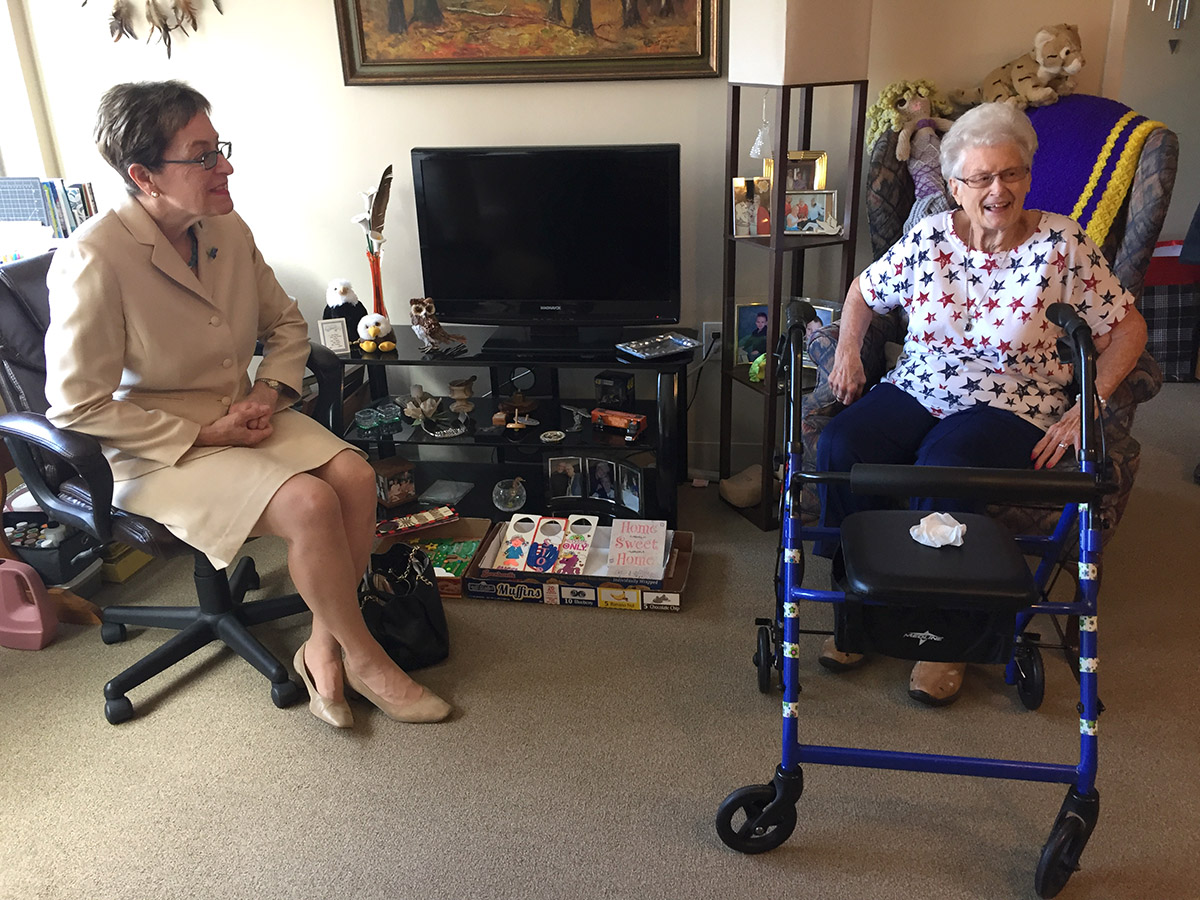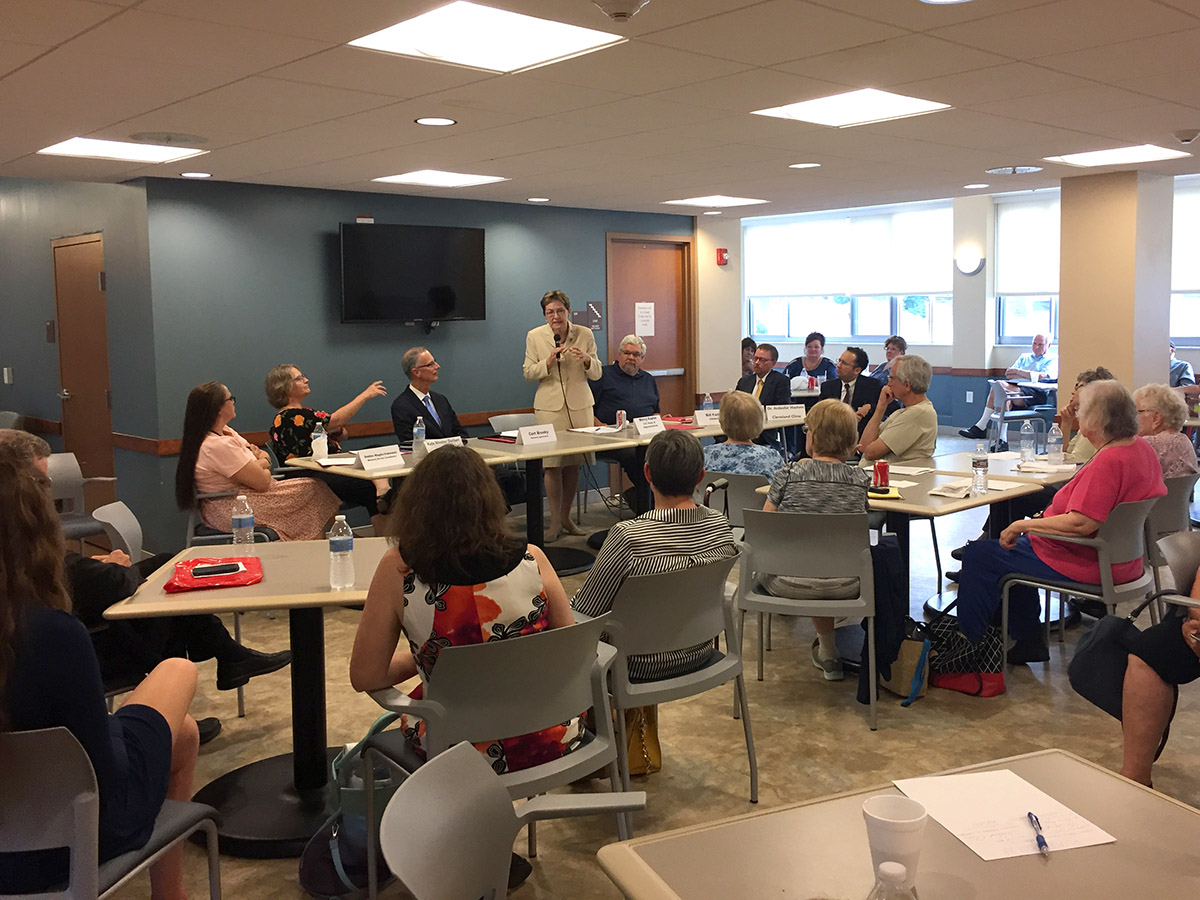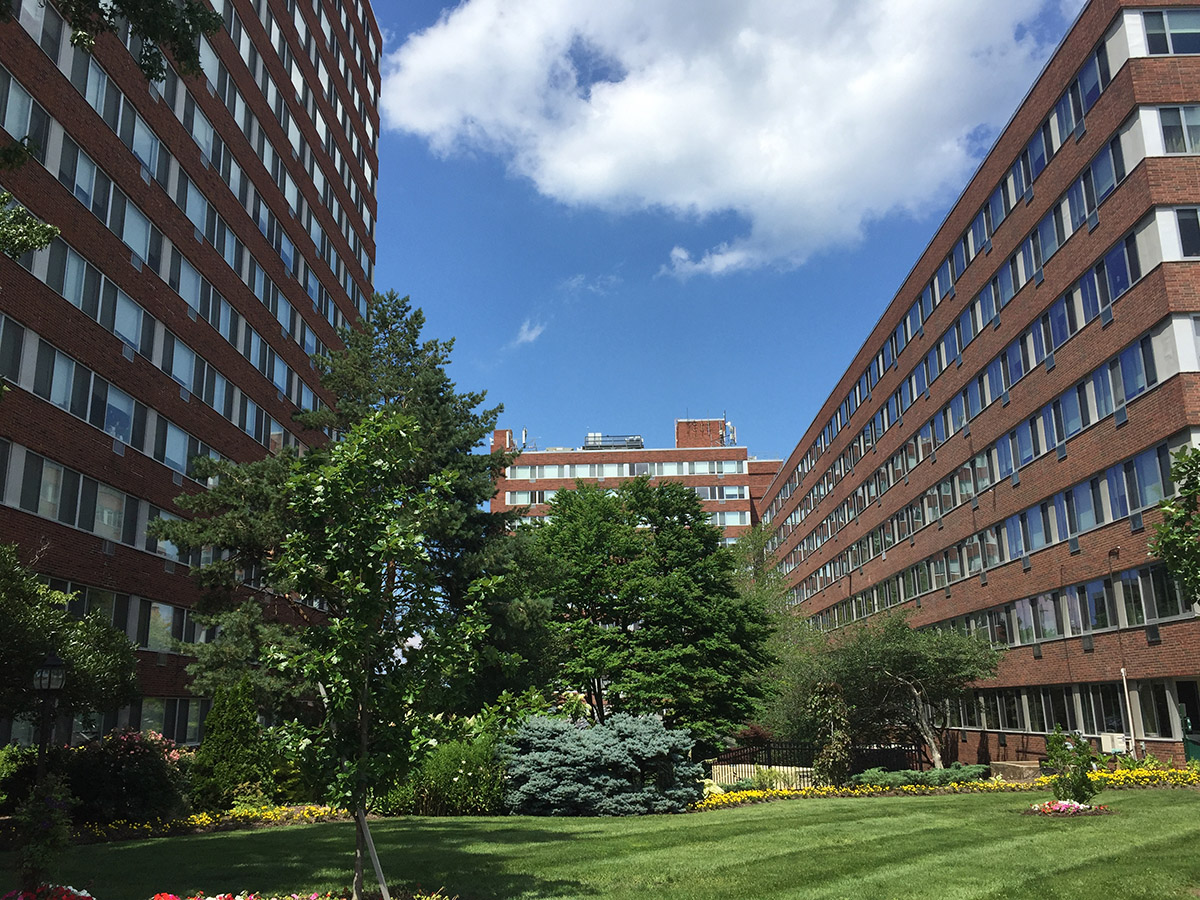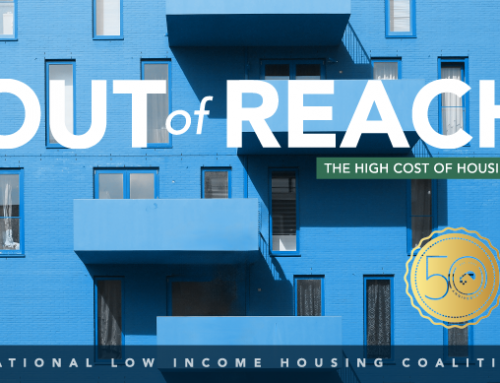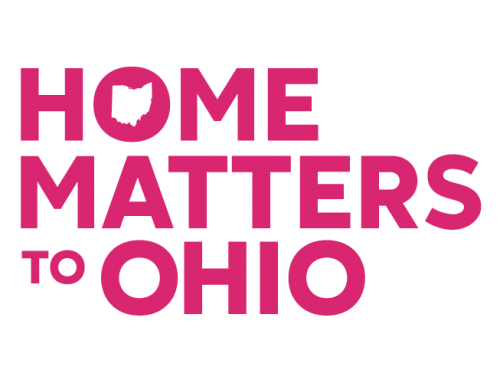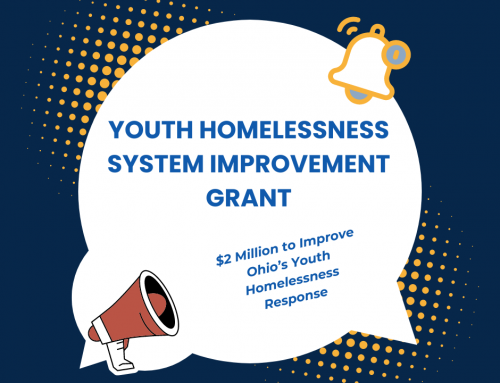Over the many years we’ve been advocating for affordable housing, we’ve found that the most effective strategy to build support among our elected officials is to introduce them to the people whose lives are improved by the programs that ensure they have a safe, decent stable home. Simply put – seeing is believing.
These housing tours are a key part of our efforts to build support among Ohio’s Congressional Delegation for HUD programs that help house formerly homeless veterans, low-income seniors, Ohioans with disabilities, and others who are struggling to keep a roof over their heads. So we were thrilled to join Congresswoman Marcy Kaptur for a tour of the Westerly Apartments in Lakewood and participate in a roundtable discussion about how housing stability is so crucial for people’s health and wellbeing.
Rep. Kaptur actually doesn’t need much convincing. She has long been a champion of affordable housing during her tenure in Congress (she recently became the longest-serving woman ever in the U.S. House!) And she has been a critical vote as a member of the House Appropriations Committee, which oversees funding for HUD programs that provide rental assistance, public housing and homeless services.
Gwen, a 93-year-old resident who has lived in the Westerly for over 20 years, told the Congresswoman that she applied for Section 8 after her husband passed away and waited three years before receiving assistance.
“That Section 8 comes in handy, believe me,” she said, noting that her husband’s medical bills had consumed most of their retirement savings by the time she was finally approved.
Following the tour, Westerly Apartments convened a multi-sector panel to discuss why the preservation and expansion of affordable housing is so critical. President and CEO Curt Brosky explained how he worked with CHN Housing Partners to leverage Low Income Housing Tax Credits, Historic Tax Credits, Service Coordinator Grants and other federal housing subsidies to fund renovations and preserve rent-assisted units that have housed vulnerable Lakewood seniors for decades and provided a thriving community for residents to age in place.
Dr. Ardeshire Hashmi, the director of the Cleveland Clinic’s Center for Geriatric Medicine, said developments like Westerly took a forward-looking approach that focuses the whole person by providing housing, food, community and socialization all onsite.
“Healthcare doesn’t work if there is no housing. If there’s no safe place for us all to live, healthcare doesn’t work,” he said, citing research showing that housing insecurity causes people to get sick two decades earlier than people with secure homes.
COHHIO’s Bill Faith said that over 52% of Ohio’s renter households over age 65 can’t afford their rent.
“There’s lots of ingredients that go into creating a good supply of decent, affordable housing, but rental assistance is the link that really helps people with the lowest incomes get housing that’s stable that they can afford,” Faith said.
Rep. Kaptur promised to fight to preserve rental assistance, housing tax credits, Medicare, Social Security and other programs that make up the nation’s safety net. “I stand with you in your housing efforts,” she told the group that had assembled at the Westerly Apartments.
COHHIO thanks Westerly Apartments, CHN Housing Partners, Cleveland Clinic, Lakewood Alive, State Rep. Nickie Antonio and Congresswoman Kaptur for joining us to highlight the importance of affordable housing in Ohio’s 9th Congressional District.
We’ve also been coordinating tours for state officials to highlight the success of the Ohio Housing Trust Fund. Most recently, we did a state advocacy push in Cincinnati with our host, Mary Burke, the Executive Director for Over the Rhine Outreach. Rep. Bill Blessing (R-Colerain) and Rep. Catherine Ingram (D-Cincinnati) visited with residents and saw firsthand the successful outcomes from the state Housing Trust Fund.
We also convened a diverse panel of community leaders and housing experts that explained why Home Matters to Ohio and why housing is foundational to all the other public policy work being done across the state. For instance, Amy Reigel, of Caresource, explained how housing impacts healthcare to the point that a person’s health outcomes are determined more by an individual’s zip code than their genetic code.
If you would like to help organize a housing tour in your local community, please contact COHHIO’s Advocacy Director Gina Wilt.
